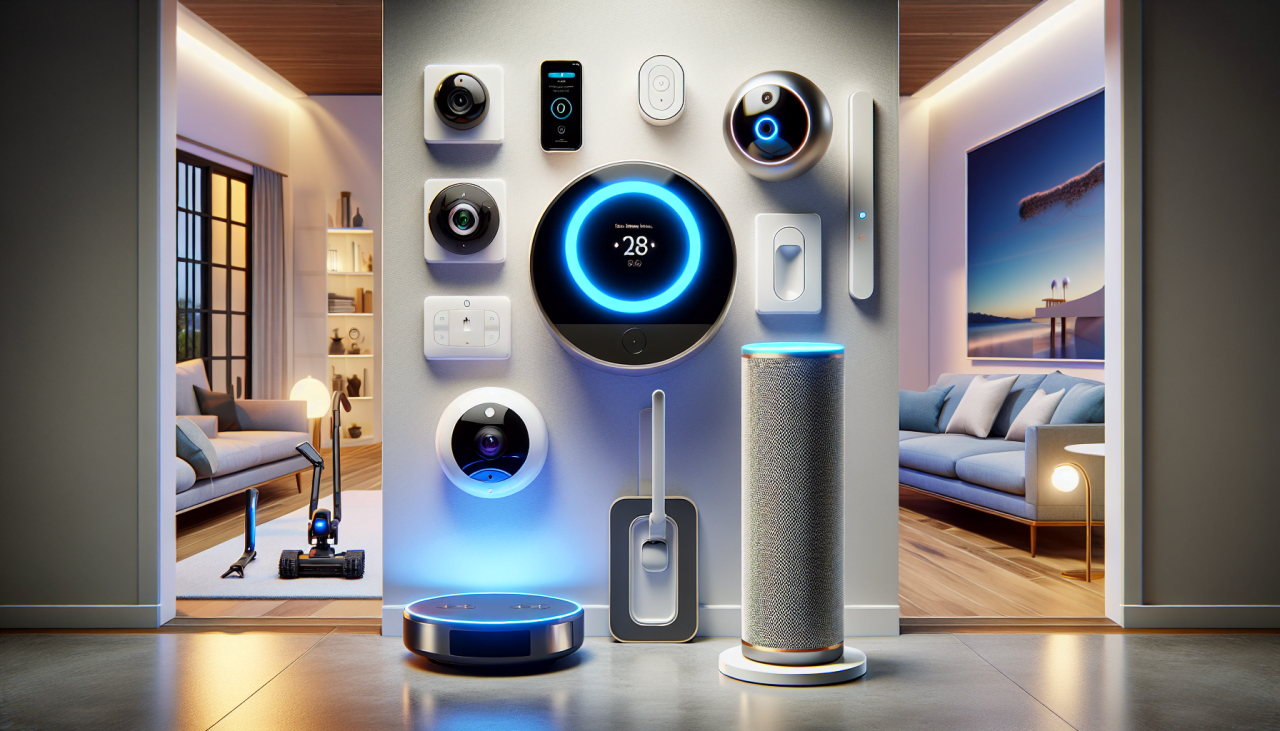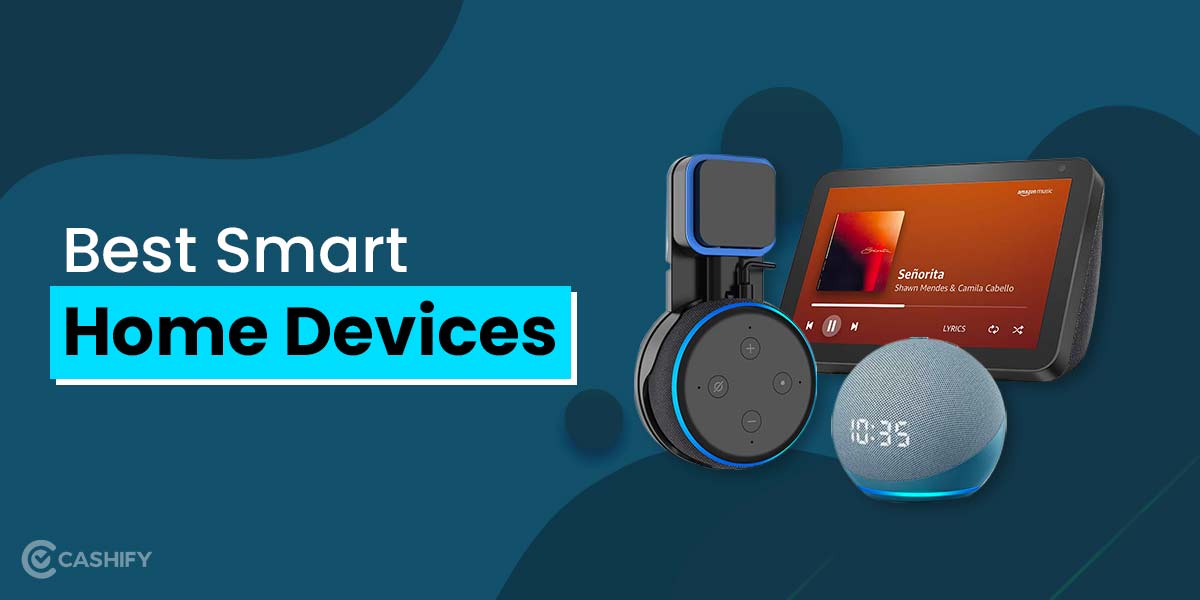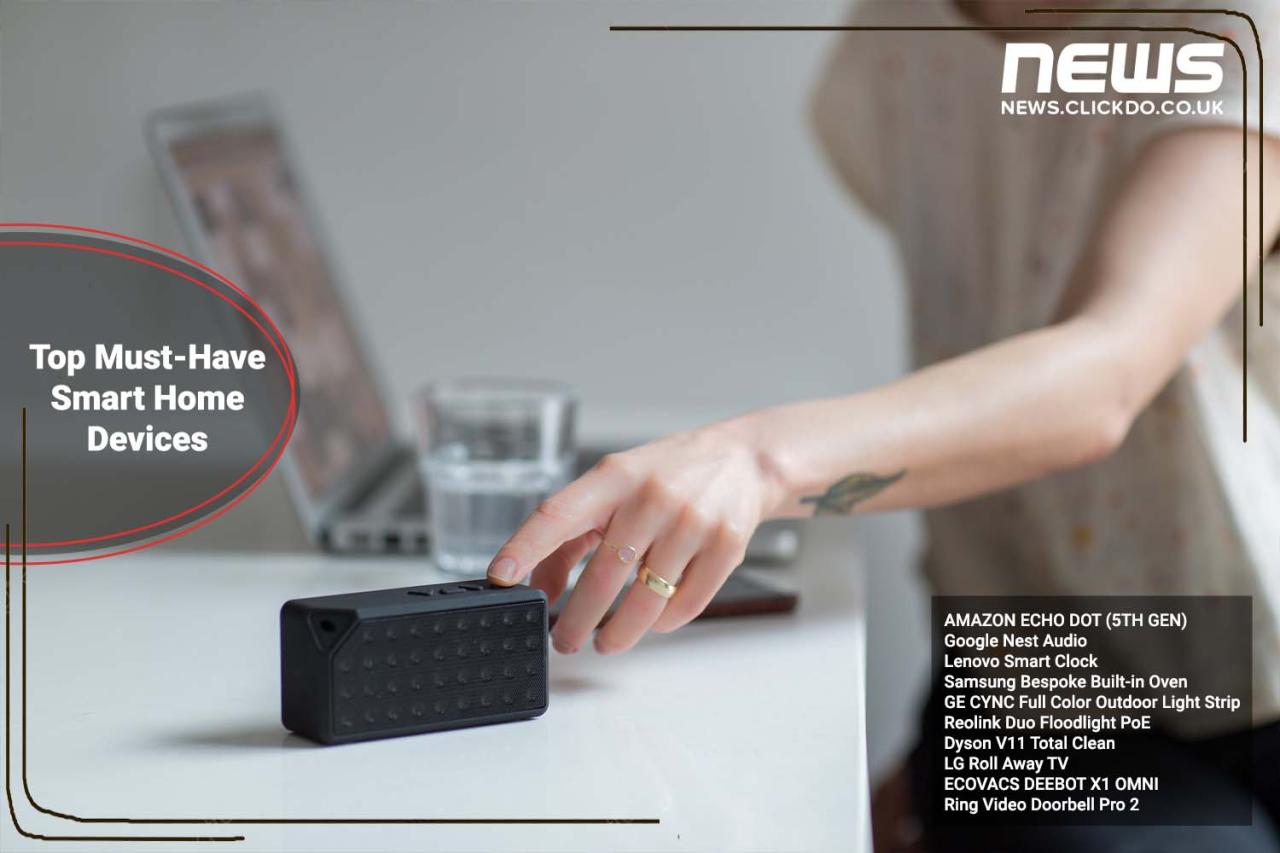As Must-have smart devices for digital home takes center stage, this opening passage beckons readers with casual formal language style into a world crafted with good knowledge, ensuring a reading experience that is both absorbing and distinctly original.
Smart devices have revolutionized the way we interact with our homes, bringing convenience and efficiency to our daily lives. From security systems to climate control and entertainment solutions, these devices have become essential in modern households. Let's delve deeper into the world of smart devices and explore the key benefits they offer for creating a truly digital home experience.
Must-have Smart Devices for Digital Home
Smart devices have become essential in modern digital homes, offering convenience, efficiency, and enhanced connectivity. These devices are designed to simplify daily tasks, improve security, and provide entertainment options for homeowners. Let's explore the key benefits of having smart devices in a digital home and discuss some popular examples that are must-haves for a modern lifestyle.
Key Benefits of Smart Devices in a Digital Home
- Enhanced Convenience: Smart devices allow for remote control and automation of various functions within the home, such as lighting, temperature, and security systems. This convenience saves time and effort for homeowners.
- Improved Efficiency: Smart devices optimize energy usage, leading to cost savings on utility bills. They also provide valuable insights into usage patterns, helping homeowners make informed decisions for a more efficient home.
- Increased Security: Smart security systems offer features like real-time monitoring, alerts, and remote access, enhancing the overall safety of the home and providing peace of mind for residents.
- Entertainment Options: Smart devices like smart TVs, speakers, and streaming devices offer a wide range of entertainment options, including access to streaming services, music, and online content.
Popular Smart Devices for a Modern Digital Home
- Smart Thermostat: Devices like Nest Thermostat learn your heating and cooling preferences, adjust settings automatically, and help save on energy costs.
- Smart Lighting: Philips Hue bulbs allow you to control the brightness, color, and scheduling of lights through a smartphone app, creating ambiance and saving energy.
- Smart Security Cameras: Brands like Arlo and Ring offer wireless cameras with motion detection, night vision, and two-way audio for enhanced home security.
- Voice Assistants: Amazon Echo and Google Home provide hands-free control of smart devices, access to information, and voice-activated assistance for various tasks.
Smart Home Security Systems

Integrating smart security systems in a digital home is crucial for ensuring the safety and protection of your property and loved ones. These advanced devices offer real-time monitoring, remote access, and automation features that enhance overall security and peace of mind.
Types of Smart Security Devices
- Smart Cameras: These devices provide live video feed, motion detection, and two-way audio communication. Look for cameras with high resolution, night vision, and cloud storage options.
- Smart Doorbells: Doorbell cameras offer a wide-angle view of your doorstep, motion detection, and alerts when someone approaches. Consider models with facial recognition and integration with other smart home devices.
- Smart Locks: These allow you to control access to your home remotely, grant temporary access codes, and receive notifications of entries and exits. Look for secure encryption protocols and compatibility with your existing door hardware.
- Smart Sensors: Window and door sensors, motion detectors, and glass break sensors can alert you of any unauthorized entry. Choose sensors with adjustable sensitivity levels and long battery life.
Features to Look for in Smart Home Security Systems
- Integration Capabilities: Ensure that the security system can be integrated with other smart home devices and platforms for seamless automation and control.
- Remote Monitoring: Look for systems that offer remote access via a mobile app, allowing you to view live footage and receive alerts from anywhere.
- Customizable Alerts: Opt for systems that allow you to customize alerts based on specific triggers, such as motion detection or door/window openings.
- Professional Monitoring: Consider systems that offer professional monitoring services for additional security and immediate response to emergencies.
- Data Encryption: Choose devices with strong encryption protocols to protect your data and ensure secure communication between the devices and the cloud.
Smart Thermostats and Climate Control
Smart thermostats are essential devices for maintaining optimal temperature and energy efficiency in a digital home. These devices offer a range of advantages for climate control, energy savings, and convenience.
Advantages of Using Smart Thermostats
- Remote Access: Smart thermostats allow users to control the temperature of their home from anywhere using a smartphone or other connected device.
- Energy Efficiency: By learning your preferences and adjusting the temperature based on your schedule, smart thermostats help reduce energy consumption and lower utility bills.
- Integration with Other Smart Devices: Smart thermostats can be integrated with other smart home devices such as smart lighting and smart blinds to create a more efficient and seamless home automation system.
- Smart Features: Some smart thermostats have features like geofencing, which can automatically adjust the temperature when you leave or arrive home, further optimizing energy usage.
Smart Lighting Solutions

Smart lighting solutions are an essential component of a digital home, offering convenience, energy efficiency, and the ability to create the perfect ambiance for any occasion.
Types of Smart Lighting Systems
- Smart Bulbs: These replace traditional light bulbs and can be controlled remotely through an app or voice commands, allowing for customizable dimming and color options.
- Smart Switches: These replace standard light switches and can be controlled manually or through a mobile app, enabling scheduling and automation of lighting settings.
- Smart Light Strips: These flexible strips can be placed under cabinets or behind furniture to provide ambient lighting and are often programmable to change colors and brightness levels.
- Smart Lighting Kits: These kits typically include a hub that connects all smart lighting devices in the home, allowing for centralized control and coordination of lighting scenes.
Personalized Lighting Schedules
Creating personalized lighting schedules can enhance the functionality of smart lighting systems. By setting specific times for lights to turn on or off, adjusting brightness levels throughout the day, or syncing lights with other smart devices like thermostats, users can optimize energy usage and create a comfortable environment tailored to their preferences.
Home Entertainment and Audio Systems

Smart entertainment devices play a crucial role in enhancing the overall digital home setup, providing immersive audio-visual experiences for users. Integrating smart audio systems with other devices can further elevate the entertainment experience by enabling seamless connectivity and control.
Various Smart Audio Systems
- Smart Speakers: Devices like Amazon Echo and Google Home offer voice-controlled audio playback, music streaming, and smart home integration.
- Soundbars: These compact audio systems can enhance TV sound quality and often come with built-in smart features like voice assistants.
- Wireless Multi-room Audio Systems: Brands like Sonos provide solutions for streaming music throughout the house, with the ability to control different zones independently.
- Home Theater Systems: High-end systems offer surround sound capabilities, 4K video pass-through, and integration with smart home platforms for a complete cinematic experience.
Final Wrap-Up
As we conclude our discussion on Must-have smart devices for digital home, it's evident that these technological innovations have become integral to modern living. From enhancing security to optimizing energy use and transforming entertainment, the impact of smart devices is undeniable.
Embracing these devices can truly elevate the digital home experience, making everyday tasks more streamlined and enjoyable.
Questions and Answers
What are the key benefits of having smart devices in a digital home?
Smart devices enhance convenience, efficiency, and security in daily life, offering users greater control and automation of their home environment.
How can smart thermostats help in energy efficiency?
Smart thermostats allow users to regulate temperature settings remotely and create personalized schedules, resulting in reduced energy consumption and lower utility bills.
What features should one look for when choosing a smart home security system?
Important features to consider include motion detection, mobile alerts, video surveillance, and integration with other smart devices for comprehensive home security.























